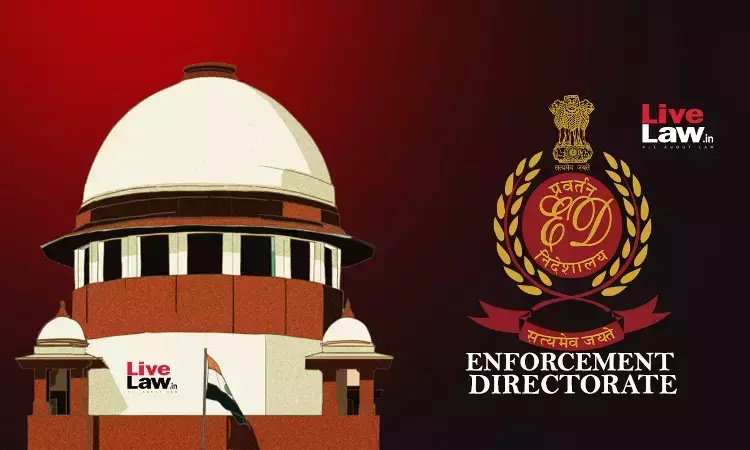Supreme Court Questions ED For Recording Statement Of Accused At 3.30 In Night
Gyanvi Khanna
4 Jun 2024 5:44 PM IST

Next Story
4 Jun 2024 5:44 PM IST
The Supreme Court (today on June 04), questioned the Enforcement Directorate for interrogating an accused at 3:30 AM during the wee hours.The Vacation Bench comprising Justice Prashant Kumar Misra and Justice KV Viswanathan was hearing a plea challenging the legality of the arrest of a person by the Enforcement Directorate who was summoned for interrogation late at night and arrested the...
